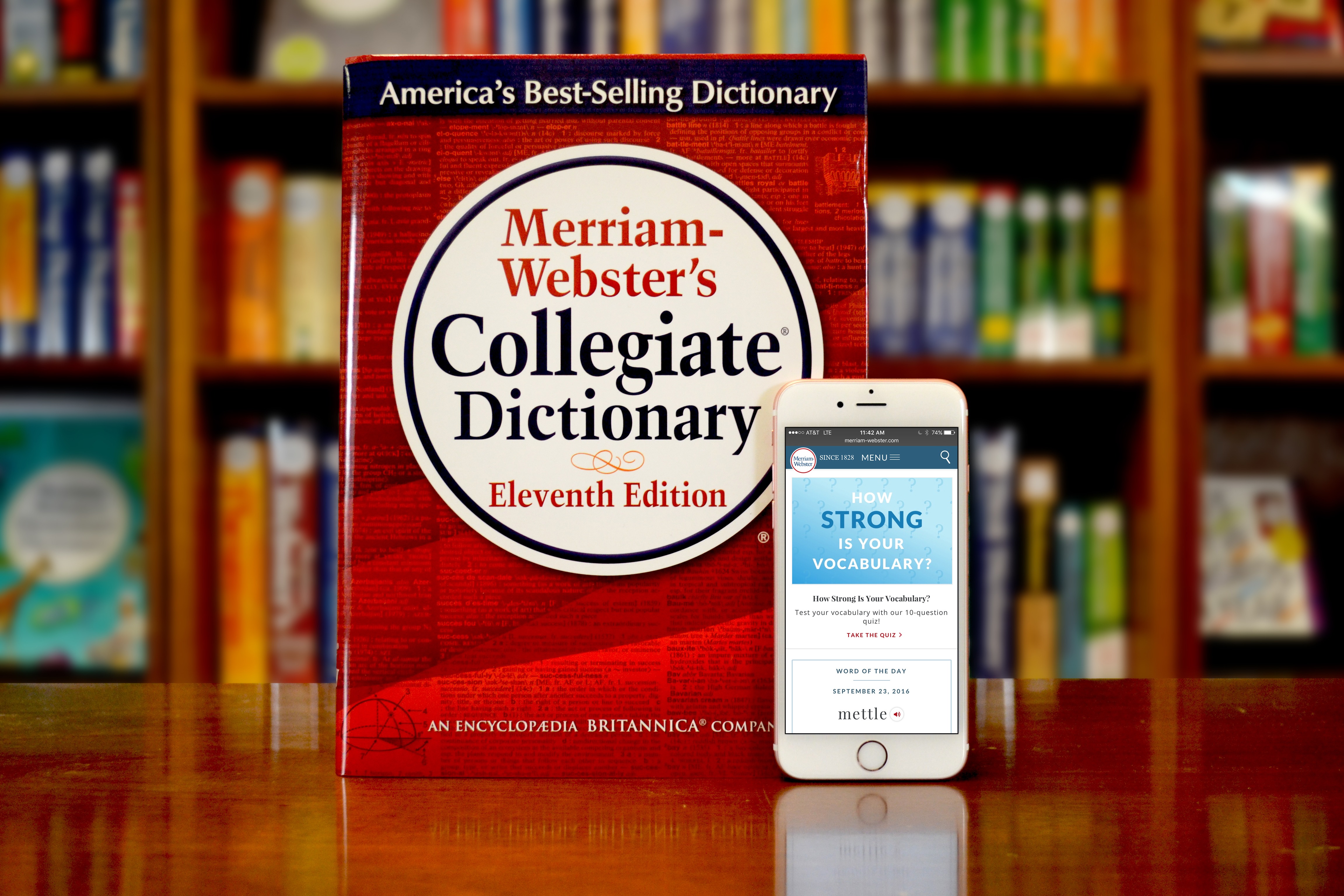Merriam-Webster's Twitter feed is increasingly, delightfully sassy


A free daily email with the biggest news stories of the day – and the best features from TheWeek.com
You are now subscribed
Your newsletter sign-up was successful
On Tuesday, the venerable Merriam-Webster dictionary schooled the ACLU on Twitter — "trolled" would be too strong a word. It started out with President Trump's new rules on immigration:
"You said it, not us," the ACLU responded. "Can ACLU petition to have the word 'vetting' retired or at least disassociated after all this is over?" asked a Twitter user from California, Shawna Iwaniuk. "Bury it with 'yolo.'" The ACLU roped in Merriam-Webster, which went in an unexpected direction:
On Monday, Merriam Webster got sassy with The Associated Press Style Guide — and remember, this is a dictionary playfully sparring with a copyeditor's rule book:
The Week
Escape your echo chamber. Get the facts behind the news, plus analysis from multiple perspectives.

Sign up for The Week's Free Newsletters
From our morning news briefing to a weekly Good News Newsletter, get the best of The Week delivered directly to your inbox.
From our morning news briefing to a weekly Good News Newsletter, get the best of The Week delivered directly to your inbox.
This is all part of the digital reinvention of the 189-year-old dictionary company. Merriam-Webster decided to put its dictionary online for free consumption in 1996, a decision the company credits for its continued success, says James Sullivan at The Boston Globe, and "its Twitter account, run out of the company's New York office by social media manager Lauren Naturale... has been duly noted as an astute, quirky, and humanizing exemplar of corporate communications."
The dictionary's social media presence "is impressive and unexpected," dictionary expert David Skinner tells The Globe. "Lexicography, remember, is not show business.... Sure, the age of social media bestows all sorts of minor celebrity on one type of person or another, but that Merriam-Webster has been able to make lexicographers look cool is still kind of shocking to me." If you want to learn more about how this happened, you can read an interview with Naturale, who has headed Merriam-Webster's social media since 2016, at Vox.
A free daily email with the biggest news stories of the day – and the best features from TheWeek.com
Peter has worked as a news and culture writer and editor at The Week since the site's launch in 2008. He covers politics, world affairs, religion and cultural currents. His journalism career began as a copy editor at a financial newswire and has included editorial positions at The New York Times Magazine, Facts on File, and Oregon State University.
-
 Political cartoons for February 7
Political cartoons for February 7Cartoons Saturday’s political cartoons include an earthquake warning, Washington Post Mortem, and more
-
 5 cinematic cartoons about Bezos betting big on 'Melania'
5 cinematic cartoons about Bezos betting big on 'Melania'Cartoons Artists take on a girlboss, a fetching newspaper, and more
-
 The fall of the generals: China’s military purge
The fall of the generals: China’s military purgeIn the Spotlight Xi Jinping’s extraordinary removal of senior general proves that no-one is safe from anti-corruption drive that has investigated millions
-
 TikTok secures deal to remain in US
TikTok secures deal to remain in USSpeed Read ByteDance will form a US version of the popular video-sharing platform
-
 Unemployment rate ticks up amid fall job losses
Unemployment rate ticks up amid fall job lossesSpeed Read Data released by the Commerce Department indicates ‘one of the weakest American labor markets in years’
-
 US mints final penny after 232-year run
US mints final penny after 232-year runSpeed Read Production of the one-cent coin has ended
-
 Warner Bros. explores sale amid Paramount bids
Warner Bros. explores sale amid Paramount bidsSpeed Read The media giant, home to HBO and DC Studios, has received interest from multiple buying parties
-
 Gold tops $4K per ounce, signaling financial unease
Gold tops $4K per ounce, signaling financial uneaseSpeed Read Investors are worried about President Donald Trump’s trade war
-
 Electronic Arts to go private in record $55B deal
Electronic Arts to go private in record $55B dealspeed read The video game giant is behind ‘The Sims’ and ‘Madden NFL’
-
 New York court tosses Trump's $500M fraud fine
New York court tosses Trump's $500M fraud fineSpeed Read A divided appeals court threw out a hefty penalty against President Trump for fraudulently inflating his wealth
-
 Trump said to seek government stake in Intel
Trump said to seek government stake in IntelSpeed Read The president and Intel CEO Lip-Bu Tan reportedly discussed the proposal at a recent meeting
